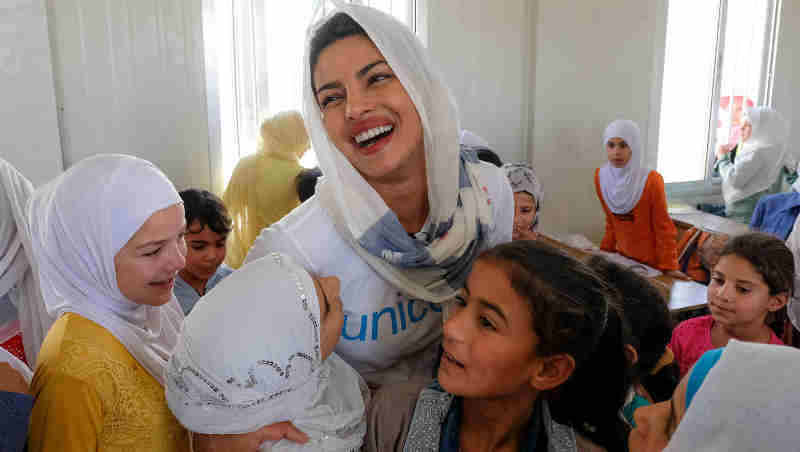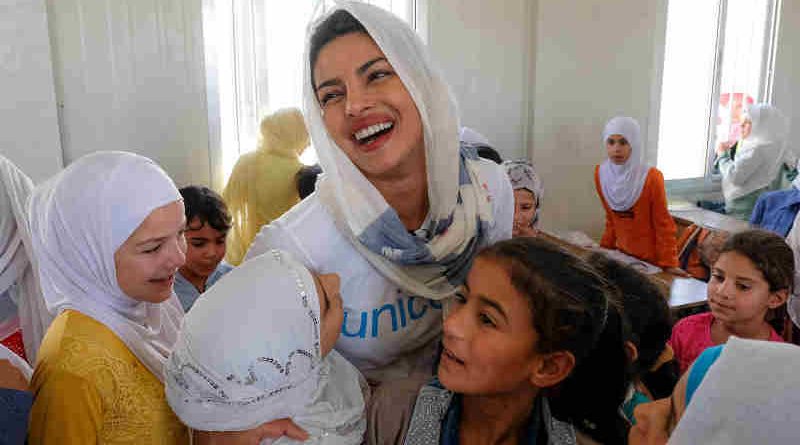Priyanka Chopra Meets with Syrian Children in Jordan

UNICEF Goodwill Ambassador and Bollywood actress Priyanka Chopra wrapped up a two-day visit to Jordan this week where she met with Syrian children, young people and their families whose lives have been greatly affected by the conflict.
On the first day, Chopra visited a UNICEF supported Makani (which means “My Space” in Arabic) centre in a host community in Amman and met nine year old Wardshan and her eight year old sister Ayat. Both of them had recently started school again after a gap of two years due to the family not having proper documentation.
With thousands of Syrian children out of school, the Ministry of Education and UNICEF are mobilizing Makani centres across the country to help girls and boys enroll back in school, in addition to providing learning support, psychosocial care and life skills training.
[ RMN Foundation Program Provides Better Livelihood to Poor People ]
“Without education a whole generation of children could grow up without the knowledge and skills needed to support themselves,” said Chopra.
Chopra visited the Za’atari refugee camp on the second day, meeting girls at a UNICEF-supported school and two Makani centres that provide psychosocial support services to both young boys involved in child labour and young girls who are survivors of child marriage.
[ Actor Liam Neeson Meets Syrian Children in Jordan ]
There are currently about 21,000 children enrolled in the 14 school complexes in Zaatari. Although there are seats available for every child in the camp, the enrolment is about 73 percent due to child marriages and child labour.
With a population of around 80,000, Za’atari is one of the largest Syrian refugee camps in the world, and is considered the fourth largest city in Jordan.
The Syrian refugee crisis remains the largest humanitarian crisis since the end of World War II. Countries neighboring Syria are hosting over 5 million registered Syrian refugees, including nearly 2.5 million children.
[ Environment Protection: Join Green Group of Dwarka ]
Now in its seventh year, over 8 million children inside Syria and in neighboring countries, including Jordan, need humanitarian assistance. UNICEF is working with partners to provide them with access to clean water, health and nutrition, as well as the education and protection that will help them to grow and thrive.
Jordan is today the second largest refugee-hosting country in the world when compared to the size of its population. The humanitarian crisis has placed additional pressure on Jordan’s scarce resources and is straining national institutions responsible for delivering social services.
Photo courtesy: UNICEF





